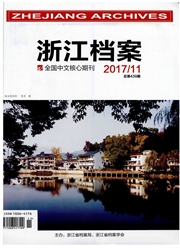

 中文摘要:
中文摘要:
自明代末期以来,随着清水江流域木材贸易的繁荣,人工营林成为当地人们的主要生计活动。然而人工营林是一个长周期性的产业,具有一定的风险性,如果发生人为或自然的灾害,林农则会遭受巨大的损失。因此林农在人工营林过程中特别注重封闭性,通过明晰林地产权,充分利用林地自然条件和地方性文化最大限度地规避各种灾害,减少损失,确保获得稳定的效益。
 英文摘要:
英文摘要:
Since the end of the Ming Dynasty, with the prosperity of the timber trade in the Qingshui River Basin, planting trees to construct artificial forests became the the main livelihood activities of the local people. However, artificial afforestation was a cyclical industry with certain risks. If the man - made or natural disasters occurred, farmers would suffer great losses. Therefore, the farmers paid particular attention to the enclosure of the artificial forest in the process of its management. It tried to clarify the property right of the forests, to make a full use of the natural condition of the forest land and local culture so as to avoid disasters to the maximum ex- tent, and reduce the losses to ensure the stable benefits for the people.
 同期刊论文项目
同期刊论文项目
 同项目期刊论文
同项目期刊论文
 期刊信息
期刊信息
